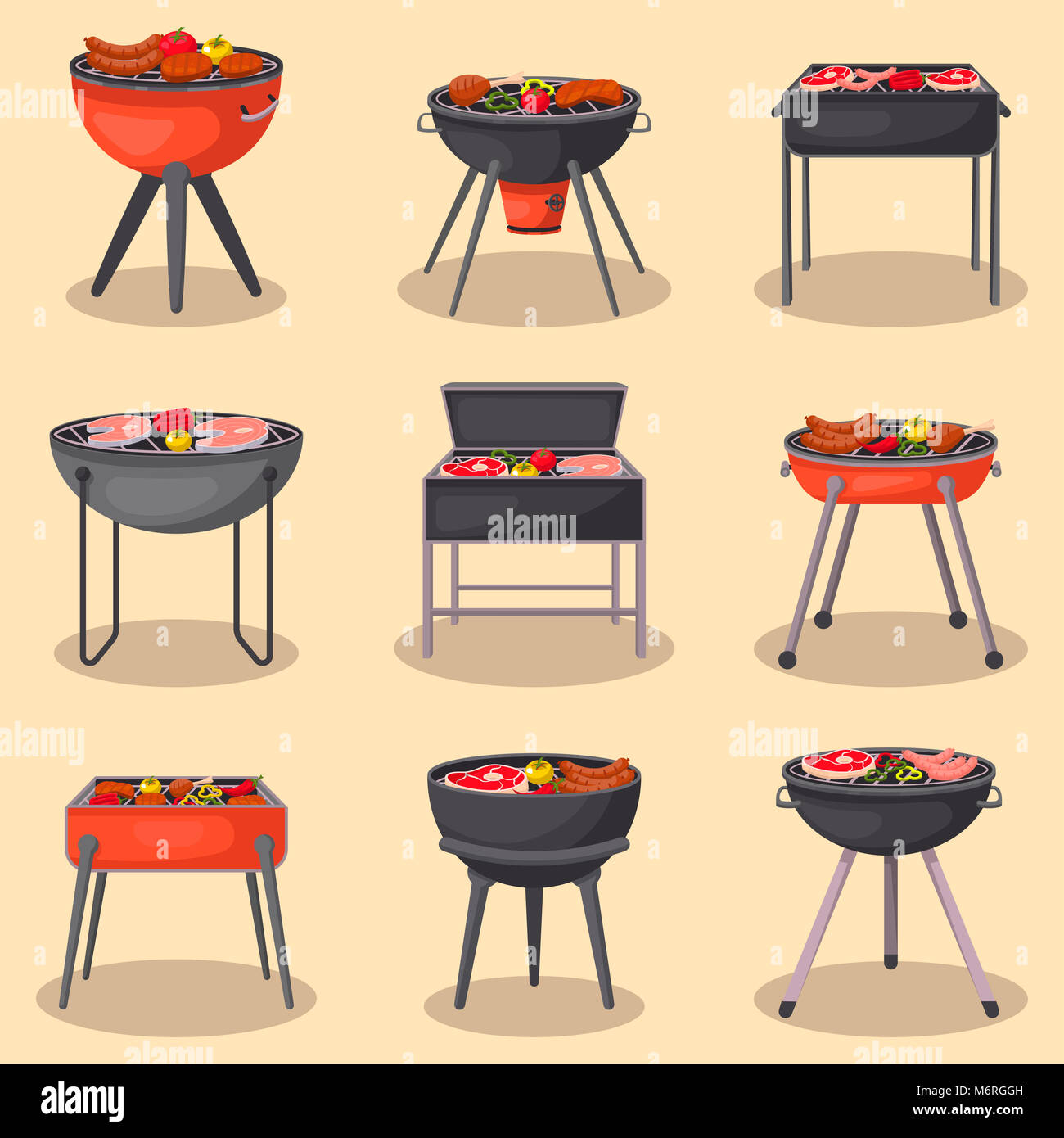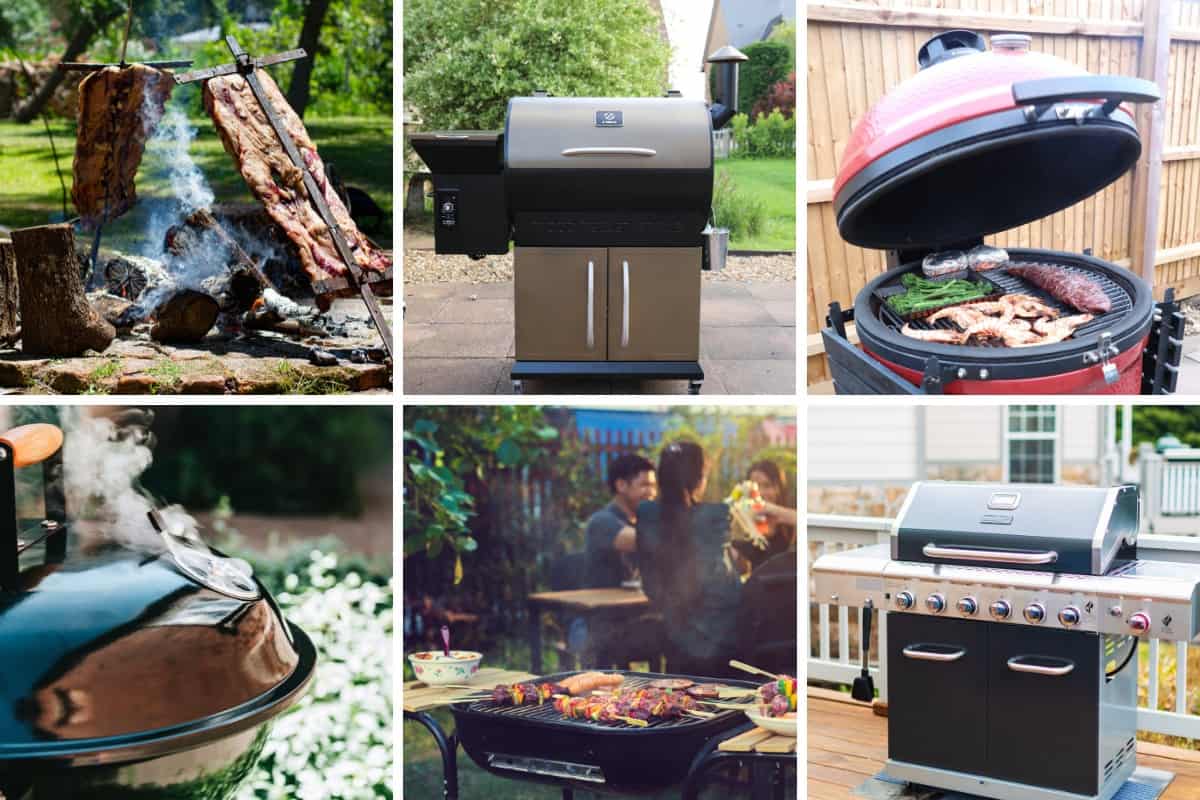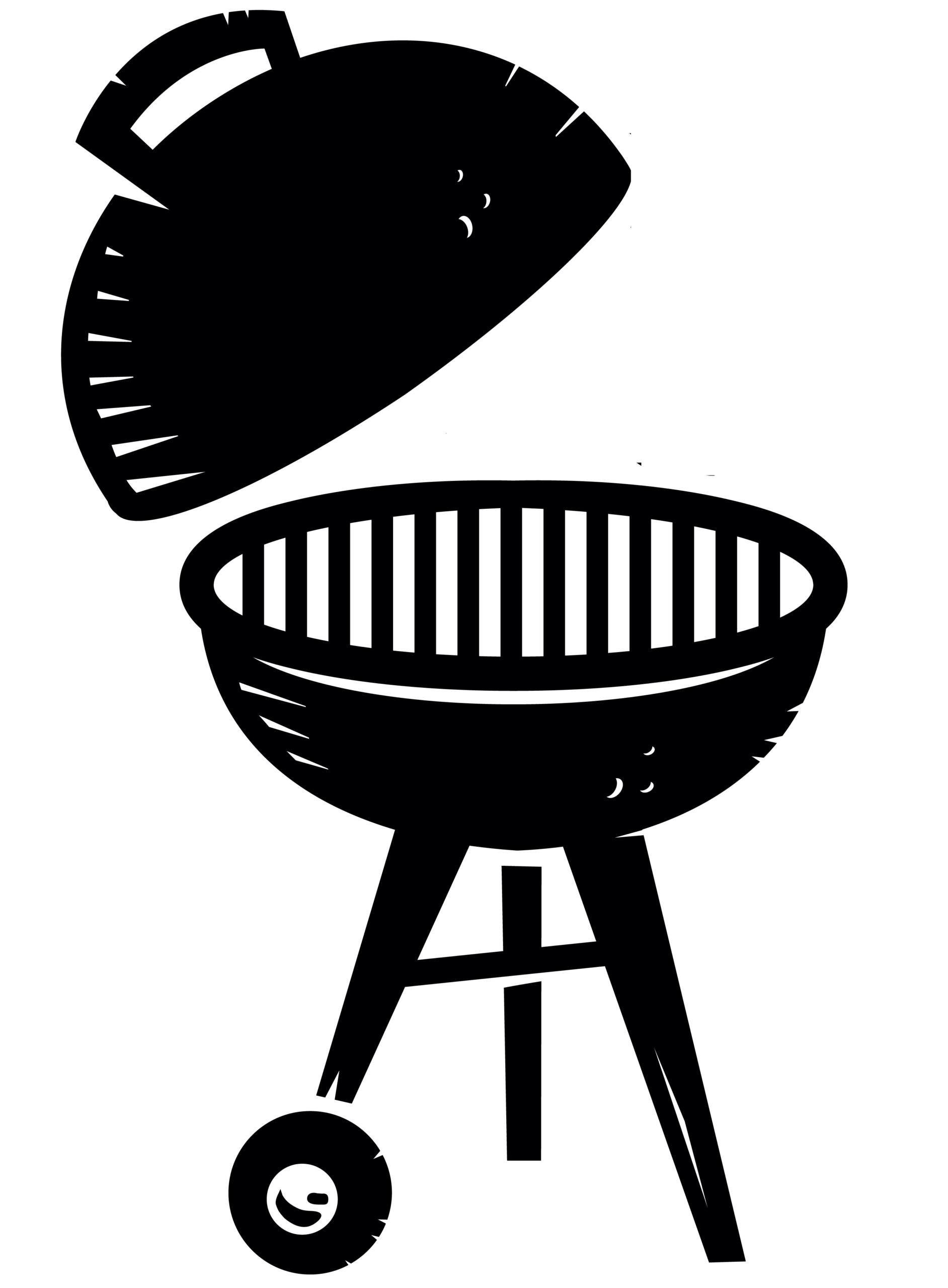Outdoor cooking enthusiasts know that the right grill can make all the difference in achieving the ideal balance of flavor, convenience, and versatility. With various grills available today, each offers unique features tailored to different cooking styles and preferences. This guide will walk you through the main types of grills, highlighting their distinctive characteristics, advantages, and limitations, helping you make an informed choice for your next grilling adventure.
Charcoal Grills
A timeless favorite, the charcoal grill is well-loved for delivering an authentic smoky taste that many grilling fans adore. Fueled by briquettes or lump charcoal, these grills provide intense heat and a flavor that’s challenging to replicate with other types of grills.
Benefits of Charcoal Grills:
- Rich Flavor: The smoky taste imparted by charcoal is one of the primary reasons people gravitate toward these grills.
- High Heat Potential: Capable of reaching high temperatures, charcoal grills excel at searing meats.
- Easy to Transport: Many charcoal grills are compact and portable, making them perfect for small spaces, camping, or tailgating.
- Cost-Effective: Typically more affordable than other types, they cater to a wide range of budgets.
Drawbacks of Charcoal Grills:
- Longer Preheat Time: It often takes 20–40 minutes to get the coals heated up and ready for cooking.
- More Cleanup Required: Charcoal grilling can be messy, requiring ash and charcoal cleanup after each use.
- Temperature Management: Unlike other grills, precise temperature control can be challenging.

Gas Grills
If convenience and speed are top priorities, a gas grill may be the ideal choice. Powered by propane or natural gas, gas grills are easy to ignite and allow for quick temperature adjustments, making them user-friendly and versatile.
Benefits of Gas Grills:
- Quick Start-Up: With an instant ignition, gas grills are ready to cook within minutes—no need for charcoal lighting.
- Controlled Temperature Settings: Adjustable knobs allow for precise control over cooking temperatures, making it easy to cook different foods simultaneously.
- Cleaner Grilling: Less smoke and ash mean easier post-cooking cleanup.
- Added Features: Many gas grills come with extras like side burners or rotisseries, expanding cooking options.
Drawbacks of Gas Grills:
- Flavor Profile: Gas grilling doesn’t deliver the same smoky taste as charcoal, though some models offer smoker boxes to help add flavor.
- Higher Cost: Gas grills, especially natural gas models, can be pricier than charcoal ones.
- Fuel Needs: Propane tanks or gas hookups limit the grill’s portability.
Electric Grills
Electric grills are a practical option for those living in apartments or areas with restrictions on open flames. These grills rely on electricity to heat the cooking surface, making them suitable for indoor or restricted outdoor spaces.
Benefits of Electric Grills:
- Easy Operation: Just plug in, and you’re ready to cook, offering a hassle-free grilling experience.
- Indoor and Outdoor Use: Suitable for both indoor and outdoor grilling, electric grills are great for year-round use.
- Compact Design: Often smaller and more portable, electric grills are ideal for limited spaces.
Drawbacks of Electric Grills:
- Reduced Smoky Flavor: Electric grills lack the rich, smoky flavor of charcoal or wood-fired options.
- Limited High Heat: They don’t usually reach the high temperatures of gas or charcoal grills, which can affect the ability to sear meat.
- Dependence on Power Outlets: Electric grills require a power source, limiting their use in remote outdoor settings.

Pellet Grills
Pellet grills combine wood-fired flavor with the ease of modern technology. Using wood pellets as fuel, these grills feature an electronic system that manages pellet feed and temperature, making them convenient yet flavorful.
Benefits of Pellet Grills:
- Wood-Fired Flavor: Pellet grills infuse food with a smoky taste, similar to charcoal grilling but with greater consistency.
- Precise Temperature Control: Digital controls enable accurate temperature adjustments, akin to gas grills.
- Highly Versatile: Capable of grilling, smoking, baking, and roasting, pellet grills are one of the most adaptable outdoor cooking options.
Drawbacks of Pellet Grills:
- Higher Cost: Often more expensive than charcoal or gas grills.
- Electricity Requirement: Similar to electric grills, pellet grills need power for their digital controls and pellet feeder.
- Routine Maintenance: Regular cleaning of the pellet hopper and feeder is necessary to keep the grill functioning smoothly.
Kamado Grills
Known for their excellent heat retention and versatile functionality, Kamado grills are ceramic grills that can serve as a grill, smoker, or even an oven. They run on charcoal but offer advanced heat control compared to traditional charcoal grills.
Benefits of Kamado Grills:
- Superior Heat Retention: The thick ceramic structure provides excellent insulation and even cooking.
- Efficient Fuel Usage: Kamado grills use less charcoal than typical charcoal grills, thanks to their insulation.
- Multi-Functional: With a wide temperature range, you can smoke, roast, bake, or grill with a Kamado.
- Built to Last: Made from high-quality ceramic, these grills are durable and long-lasting.
Drawbacks of Kamado Grills:
- Higher Price Point: Kamado grills tend to be costlier than standard charcoal grills.
- Weight and Portability: Due to their ceramic construction, these grills are heavy and less portable.
- Learning Curve: Mastering temperature control on a Kamado requires practice, as they’re sensitive to airflow changes.
Portable Grills
For grillers who like to take their cooking on the go, portable grills are compact, lightweight options perfect for camping, tailgating, or picnics. They come in various fuel types, allowing you to choose what best suits your needs.
Benefits of Portable Grills:
- Convenient for Travel: Their lightweight, compact design makes them easy to pack and transport.
- Fuel Flexibility: Available in charcoal, gas, and electric models, offering options based on preference.
- Budget-Friendly: Typically more affordable than full-sized grills.
Drawbacks of Portable Grills:
- Limited Cooking Area: Due to their size, they may not be ideal for cooking for large gatherings.
- Basic Heat Control: Smaller grills may not have advanced temperature control features.
Conclusion on Choosing the Right Grill
Selecting the best grill depends on your cooking style, lifestyle, and space. Whether you crave the traditional flavor of a charcoal grill, the convenience of a gas grill, the adaptability of a pellet grill, or the portability of a compact option, there’s a grill to match your needs. By understanding the strengths and limitations of each type, you can confidently choose a grill that will enhance your outdoor cooking and deliver delicious results every time.
